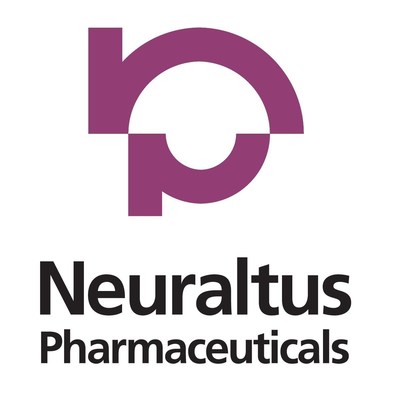Biomarker Analyses Of Neuraltus Pharmaceuticals, Inc.' NP001 Phase 2 Data Demonstrate Potential For Treating ALS Patients With Systemic Inflammation
PALO ALTO, Calif., April 4, 2016 /PRNewswire/ -- Secondary analyses of Neuraltus Pharmaceuticals' Phase 2 clinical trial of its investigational treatment, NP001, for amyotrophic lateral sclerosis (ALS, also known as Lou Gehrig's disease), suggest that increased levels of a biomarker for systemic inflammation, C-reactive protein (CRP), may indicate which patients are more likely to have a positive response. ALS progression is believed to be driven, in part, by systemic inflammation and NP001 is designed to regulate inflammatory cell activity, as measured by CRP. In the Phase 2 study, Neuraltus prospectively measured CRP levels in participating patients. CRP is easily measured and high levels are recognized as indicating systemic inflammation. Neuraltus believes the additional pre-defined analyses of the Phase 2 data involving CRP, in conjunction with other independent research in ALS patients, make it a credible biomarker for enriching patient selection in future studies of NP001.

As previously disclosed in the publication of the study (April 2015 issue of Neurology: Neuroimmunology & Neuroinflammation), NP001 showed clinically meaningful slowing of progression in patients with greater baseline inflammation. Further to these results, secondary analyses demonstrated that patients with baseline CRP levels greater than the median had a statistically significant (p< 0.02) and clinically meaningful benefit from treatment with the high dose (2 mg/kg) of NP001 as measured by the mean change from baseline in the ALS Functional Rating Scale-Revised (ALSFRS-R). The ALSFRS-R measures key activities of daily living and function for patients with ALS. Assessing ALSFRS-R for patients above and below the baseline median CRP was predefined in the study protocol and the statistical analysis plan. Similarly, patients treated with NP001 who had baseline CRP greater than the median level for all patients had less deterioration in slow vital capacity, a measure of lung function, compared to placebo-treated patients.
"The results of these secondary analyses contribute to the growing body of evidencei demonstrating that CRP is significantly elevated in patients with ALS and may be an indicator of disease progression," said Stanley H. Appel, MD, Edwards Chair for the Treatment and Research of ALS, Chair, Department of Neurology, Neurological Institute, Director, Houston Methodist Neurological Institute, and study investigator. "While there is currently no validated biomarker for ALS, CRP levels may help stratify patients for enrollment in clinical studies of investigational drugs focused on neuroinflammation, like NP001."
The decision to prospectively measure CRP was based on independent research published in the journal Acta Neurologica Scandinavica in 2009, which demonstrated that CRP was elevated in patients with ALS and potentially related to disease progression. ALS is a rare and fatal neurodegenerative disease affecting approximately 400,000 individuals worldwide, and is characterized by degeneration of motor neurons in the spinal cord and brain.
"Given the current lack of effective treatments for this deadly disease, this biomarker finding and how it relates to response to NP001 may represent an important step forward in the treatment of ALS," said Rich Casey, chief executive officer, Neuraltus Pharmaceuticals. "Increased levels of systemic inflammation can lead to neuronal damage and neuronal cell death in the central nervous system. NP001 is designed to help reduce the inflammatory response, which we believe may slow the rate at which ALS progresses."
Neuraltus also announced today the planned Phase 2 study of NP001 in North America. The study will be funded by capital raised during an equity financing. The Company expects to initiate the trial during the summer of 2016, in which Neuraltus plans to use CRP as a screening biomarker. Additional information about the Phase 2 study will be announced when trial enrollment begins, and will be made available on the Company's website.
About the Phase 2 Study of NP001
The Phase 2 randomized, double-blind, placebo-controlled study enrolled 136 patients with ALS. Patients received either NP001 2 mg/kg, NP001 1 mg/kg or placebo over a period of 6 months, followed by a 3-month follow-up period. The study was designed to evaluate the change in slope of ALSFRS-R and the safety and tolerability of NP001, as well as change from baseline in ALSFRS-R through 6 months, a joint rank analysis of change of ALSFRS-R adjusted for mortality and changes in readily measured peripheral inflammation biomarkers. Results of the study were first presented in December 2013 at the 24th International Symposium on ALS/MNS in Milan, Italy.
About Amyotrophic Lateral Sclerosis
Amyotrophic lateral sclerosis (ALS, or Lou Gehrig's disease) is a rare and fatal neurodegenerative disease characterized by degeneration of motor neurons in the spinal cord and brain. The cause of the disease is currently unknown, but there is increasing evidence that implicates neuroinflammation with the progression of the disease. It is believed that in people with ALS, there are increased levels of inflammatory (activated) macrophages, a type of white blood cell, resulting in the release of factors in the central nervous system that leads to damage of motor neurons. NP001, a regulator of macrophage activation, exerts its effect by converting these activated inflammatory macrophages back to their normal state.
There are approximately 400,000 ALS patients worldwide. There are no existing treatments that meaningfully slow the progression of or stabilize the disease, underscoring the need for new and effective drug therapy.
About Neuraltus Pharmaceuticals, Inc.
Neuraltus Pharmaceuticals, Inc. is a privately-held biopharmaceutical company dedicated to developing and commercializing innovative therapeutics that address critical unmet needs for patients and physicians in the treatment of neurodegenerative diseases. The Company is collaborating with global ALS specialists and seeking input from patient advocacy organizations to help inform the clinical development path and better understand the needs of people affected by the disease.
For more information, please visit www.neuraltus.com.
i Keizman et al. (Acta Neurol Scand 2009: 119:383-389)
Contact: Edie DeVine, GCI Health
Office: +1 (209) 814-9564
Logo - http://photos.prnewswire.com/prnh/20150417/199512LOGO
To view the original version on PR Newswire, visit:http://www.prnewswire.com/news-releases/biomarker-analyses-of-neuraltus-pharmaceuticals-np001-phase-2-data-demonstrate-potential-for-treating-als-patients-with-systemic-inflammation-300245077.html
SOURCE Neuraltus Pharmaceuticals, Inc.

